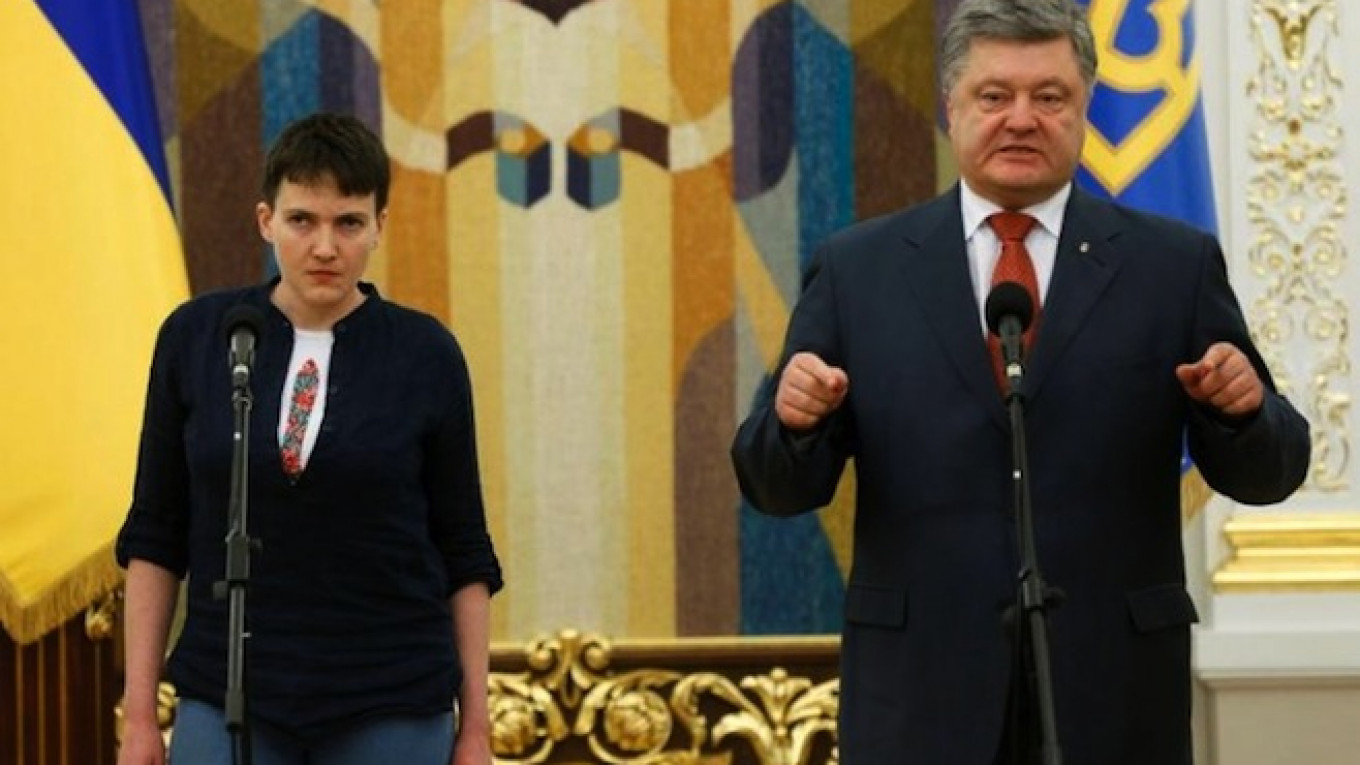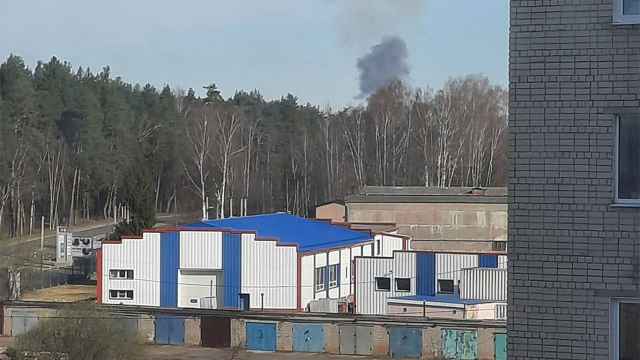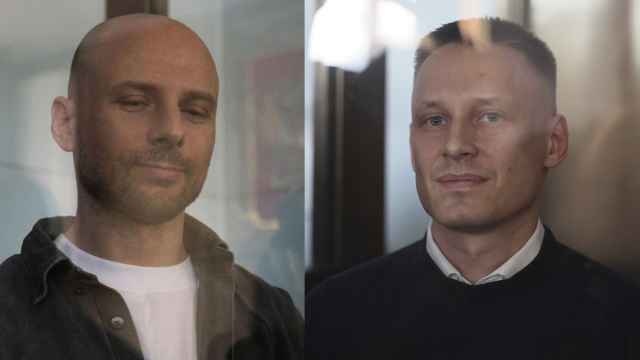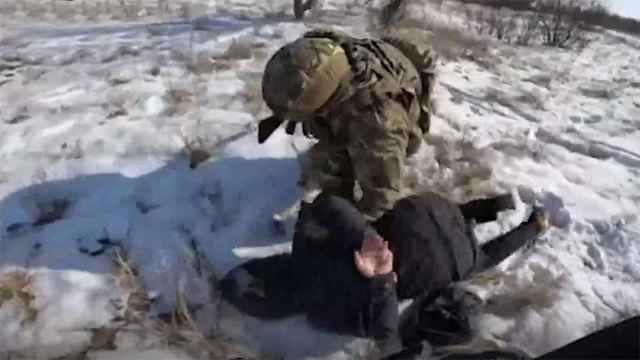Nadezhda Savchenko, a deputy in Ukraine’s parliament, has delivered her first speech as its delegate at a meeting of the Parliamentary Assembly of the Council of Europe (PACE) in Strasbourg, the RBC news agency reported Monday.
Savchenko became a member of the organization while she was on trial in Russia over her alleged involvement in the deaths of Russian journalists in eastern Ukraine. Last month, she was returned to Ukraine in exchange for Russian citizens Alexander Alexandrov and Yevgeny Yerofeyev.
In her speech, Savchenko thanked PACE members for contributing to her return to Ukraine and urged that pressure be put on Russia to release other Ukrainian prisoners.
“I do not wish a neighbor like Russia on anyone,” she added. “Those who have had [such a neighbor] know what I mean.”
Before the meeting, Savchenko spoke to Pedro Agramunt, a member of Spanish People’s Party, in order to convince him to help Ukrainians imprisoned in Russia, Ukraine’s Ambassador to PACE Dmitry Kuleba wrote on Twitter.
PACE deputies and Savchenko agreed to work on the release of all political prisoners in Council of Europe member states, RBC reported.
Savchenko will participate in two more PACE events during her visit to Strasbourg — a so-called “opinion exchange” session and a round-table discussion titled “Meeting with Savchenko: Ukrainian prisoners in Russia” are scheduled for Monday and Tuesday, respectively.
Savchenko’s statements since her return to Ukraine have come into conflict with the position of the Ukrainian parliament and president. She suggested that direct talks be held with the heads of the self-proclaimed Donetsk and Luhansk republics in the country’s east, the Kommersant newspaper reported.
Following her statements, Savchenko was accused of “aiding the aggressor.”
A Message from The Moscow Times:
Dear readers,
We are facing unprecedented challenges. Russia's Prosecutor General's Office has designated The Moscow Times as an "undesirable" organization, criminalizing our work and putting our staff at risk of prosecution. This follows our earlier unjust labeling as a "foreign agent."
These actions are direct attempts to silence independent journalism in Russia. The authorities claim our work "discredits the decisions of the Russian leadership." We see things differently: we strive to provide accurate, unbiased reporting on Russia.
We, the journalists of The Moscow Times, refuse to be silenced. But to continue our work, we need your help.
Your support, no matter how small, makes a world of difference. If you can, please support us monthly starting from just $2. It's quick to set up, and every contribution makes a significant impact.
By supporting The Moscow Times, you're defending open, independent journalism in the face of repression. Thank you for standing with us.
Remind me later.






